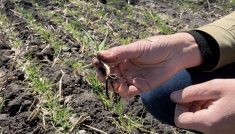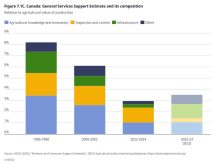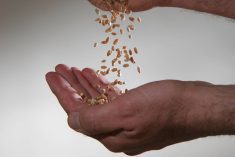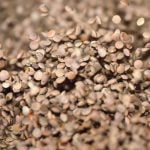Glacier FarmMedia – It’s not the sort of thing you can afford to forget.
If farmers received money from the Canada Emergency Business Account during the pandemic, missing the Jan. 18 repayment deadline could bring a sharp boot to the finances.
“It would be $20,000 evaporating,” said Marvin Slingerland, MNP’s national director for livestock services.
Read Also

3D imaging takes guesswork out of wheat research
A Winnipeg-based lab is refining a tool that can create 3D renderings of wheat plants and give precise structural measurements for faster crop breeding.
Nobody should assume the federal government will punt the repayment deadline down the road or entirely forgive the $60,000 loans, he said, noting “I think that is a trap people have fallen into.”
The CEBA loans were provided to businesses across Canada to keep struggling operations alive through the pandemic, when many had to close to the public, wrestle with employee layoffs or consider permanent closure.
These challenges weren’t a big deal in agriculture because most farms were able to continue operations despite the challenges. Farming was one of the least affected sectors of the economy after the first few months of the pandemic.
However, thousands of farmers likely took advantage of the loans for various reasons, so some are affected by the Jan. 18 drop-dead date for repayment.
Those farms must find a way to redirect money toward the $40,000 repayment total. If that amount is repaid, $20,000 is forgiven.
At the same time, Slingerland noted, many farms have a lot of cash flow at their disposal.
Recent Statistics Canada reports noted significant farm cash receipts in 2022 and 2023. Crop receipts, for example, were up 15.2 per cent in 2022, while overall farm receipts in the first three quarters of 2023 were up 7.9 per cent from the same period the previous year.
However, higher input costs led to a decrease in 2022 realized net income.
“There is a lot of cash flow coming in and going out,” said Slingerland. “Compared to, say, a restaurant, where they might not have a lot of cash sitting around to pay this off, most farms can handle it.”
For farmers in a weak cash situation, creative solutions can often be found.
“If producers are short of cash, I would … recommend they speak with their banker,” said Slingerland.
After Jan. 18, interest starts accruing on the loans, which have been interest-free to this point.
A farmer’s financial institution might be able to extend an operating loan to take up the $40,000 or create another loan. That would lock in the $20,000 forgivable portion.
“Most bankers have been able to find solutions,” said Slingerland.
If that isn’t possible, an advance payment through any administrative farmer organizations can fulfil the same purpose.
The most important step is dealing with the situation. A phone call to the bank could provide a lot of relief, noted Slingerland.
Above all, farmers should not forget the deadline if they took advantage of the loan.
“The 18th is coming up pretty quickly,” said Slingerland. “Most producers have been on the ball with it, but for those who aren’t, I would suggest they talk to their banker ASAP.”
– Ed White is a reporter for The Western Producer.


















